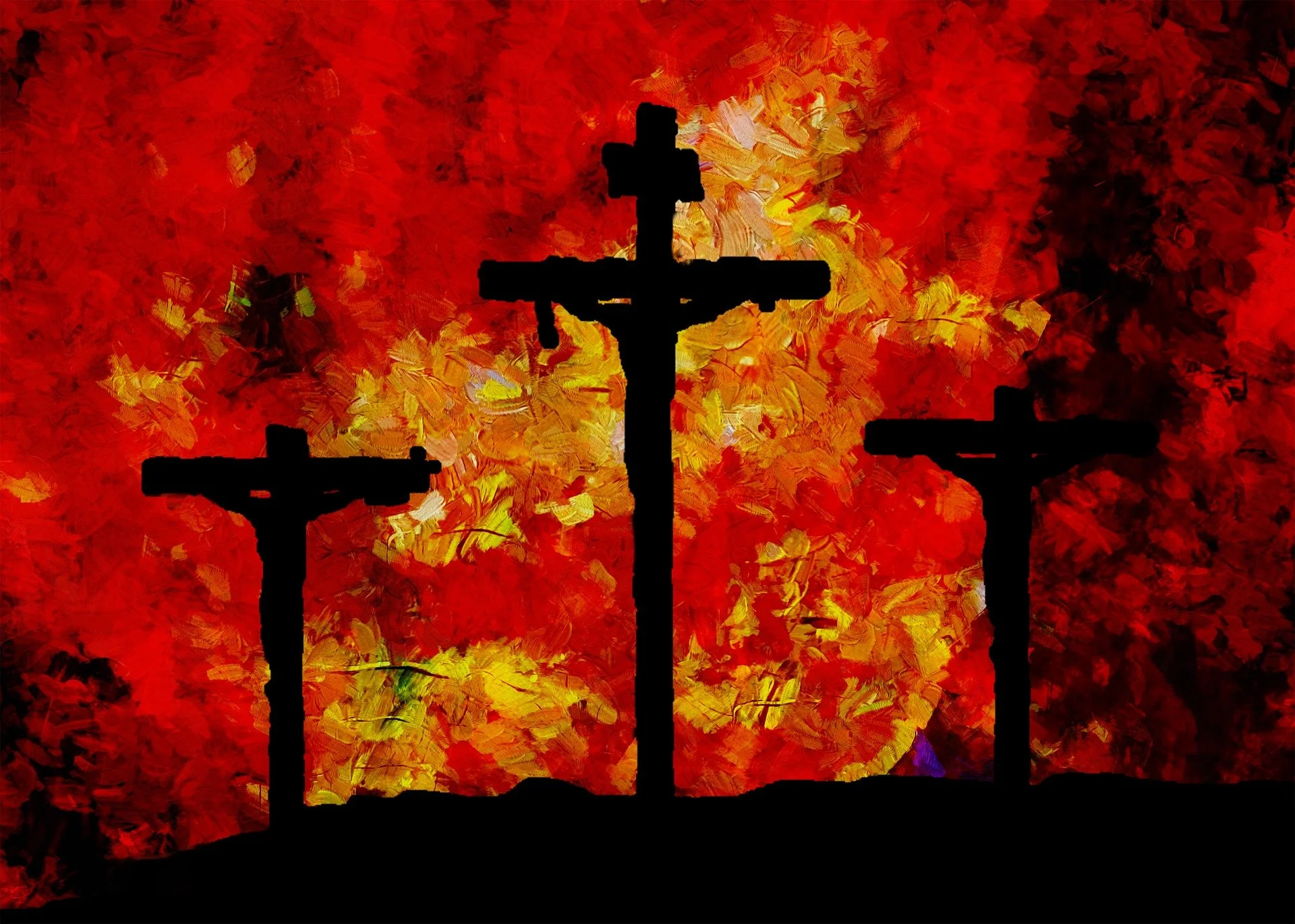Thought's on the Reality of Living in this Fallen World
Since Charlie Kirk’s murder last week, I have been trying to figure out how to respond. It was only in the last four months that I started to follow Charlie on Facebook, so I certainly did not know him personally, but I liked what he was doing. If a person can get people to think and do it in a way that shows self-control and kindness, that’s awesome. I have seen a number of people talk about Charlie since his death and it sounds like he was one of the good guys: a young man who had a passion, not only for conservative values, but for God and His word. Was he perfect? Of course not, none of us are, but to dedicate your life to connecting and talking with others means something.
When deciding what to write about, I thought it best to honor Charlie by taking us back to God’s Word.
The Roaring Lion
“8 Be of sober spirit, be on the alert. Your adversary, the devil, prowls around like a roaring lion, seeking someone to devour.”
While we do have enemies made of flesh and blood, our real enemy is much more crafty than any human being. He was an angelic being, created by God to serve Him, but given a free will Lucifer decided he should be the one making the decisions and tried to take God’s throne. God banished him from heaven along with a large number of angels who followed him. Earth is their dwelling place, and Satan loves to play with God’s most precious creation, humanity. (See Ezekiel 28:13-17, and Isaiah 14:12-14)
As I have said before on this blog, what better plan could an enemy concoct, but that which makes the prey think he doesn’t exist, and that the thing that matters most is their own selfish desires. The problem is, Satan has his fingers heart-deep in so many people’s lives due to his adept skill at manipulating the truth.
Charlie Kirk spoke truth. He spoke ideas and thoughts that aligned with God’s Word, and many lives were changed because he had the bravery and desire to make a difference. Yes, a 22 year old man shot him, but it was the unseen enemy, Satan, who was moving and manipulating behind the scenes. He moves and manipulates every time there is a school shooting, a child is forced into the sex trade, families wonder where their next meal is coming from, bullies try to have the upper hand, church ladies gossip; the list is endless. Look at the darkness in the world and you will realize Satan is at the core of all of it.
Difficult Times will Come
Isn’t it interesting that the lion above and the man below have a similar facial expression?
Image by Engin Akyurt from Pixabay
“1 But realize this, that in the last days difficult times will come.
2 For men will be lovers of self, lovers of money, boastful, arrogant, revilers, disobedient to parents, ungrateful, unholy,
3 unloving, irreconcilable, malicious gossips, without self-control, brutal, haters of good,
4 treacherous, reckless, conceited, lovers of pleasure rather than lovers of God,
5 holding to a form of godliness, although they have denied its power; Avoid such men as these.”
Why are we surprised by the responses that many people are leaving on social media in the aftermath of Charlie Kirk’s murder? These verses could not be any more accurate than if a news reporter wrote them this past week: boastful, revilers, ungrateful, unholy, unloving, malicious gossips, without self-control, brutal, haters of good…lovers of pleasure rather than lovers of God.
The last sentence in this group of verses tells us to avoid such men/women as these. Charlie Kirk did not avoid them. He met them face to face, and head on he broached the hard topics - racism, abortion, gun violence, and others.
Living According to God’s Word will Bring Persecution
Pixabay
“12 Indeed, all who desire to live godly in Christ Jesus will be persecuted.
13 But evil men and impostors will proceed from bad to worse, deceiving and being deceived.”
We are told if we desire to live godly in Christ Jesus we will be persecuted. In addition, Jesus said,
“33 These things I have spoken to you, so that in Me you may have peace. In the world you have tribulation, but take courage; I have overcome the world.””
In this world we will have tribulation, but Jesus has overcome the world.
Our Purpose through it All
No matter what is going on in the world around us our identity and purpose does not change. We are made in the image of the almighty God (Genesis 1:26-27), and our purpose is to honor and glorify Him with our abilities, talents and our voices (Colossians 3:23). Charlie Kirk knew this and used the gifts God had given Him to lift up His truth and glorify Him. What is God’s will for us during these difficult times?
“14 We urge you, brethren, admonish the unruly, encourage the fainthearted, help the weak, be patient with everyone.
15 See that no one repays another with evil for evil, but always seek after that which is good for one another and for all people.
16 Rejoice always;
17 pray without ceasing;
18 in everything give thanks; for this is God’s will for you in Christ Jesus.
19 Do not quench the Spirit;
20 do not despise prophetic utterances.
21 But examine everything carefully; hold fast to that which is good;
22 abstain from every form of evil.”
These principles, are the same today as they were 2000 years ago. Evil has been here since Satan chose to defy His God and Adam and Eve chose to listen to his half-truth whispers. Thankfully our God has not changed. Whether you are angry at the injustice of Charlie’s murder, or you are rejoicing that his voice has been silenced, Jesus Christ is the same yesterday, today and forever (Hebrews 13:8) and no one on this planet can change that.
Do Not Lose Hope
Image by Muhammad Haseeb Muhammad Suleman from Pixabay
I felt the aftermath of Charlie’s death as if he had been a close relative, and in a way he was. For those of us who believe, he was our brother in Christ and his wife is our sister in Christ. While I didn’t know him other than through social media clips, Charlie represented truth I believe in and qualities I want to have: love, boldness and joy.
My dear friends, do not lose hope.
“Be strong and let your heart take courage,
All you who hope in the Lord.”
“My soul, wait in silence for God only,
For my hope is from Him.”
“Sustain me according to Your word, that I may live; And do not let me be ashamed of my hope.”
“1 Therefore, having been justified by faith, we have peace with God through our Lord Jesus Christ,
2 through whom also we have obtained our introduction by faith into this grace in which we stand; and we exult in hope of the glory of God.
3 And not only this, but we also exult in our tribulations, knowing that tribulation brings about perseverance;
4 and perseverance, proven character; and proven character, hope;
5 and hope does not disappoint, because the love of God has been poured out within our hearts through the Holy Spirit who was given to us.”
Our hope does not disappoint! We know that Charlie is now with Jesus, as are my father, father-in-law, and many, many others who have gone before. They are rejoicing in the presence of their Savior and the troubles of this world are dim compared to His eternal burning love.
Thank you Father for sharing your love with this world through people like Charlie Kirk, and thank you Charlie for being exactly who God wanted you to be.




























































